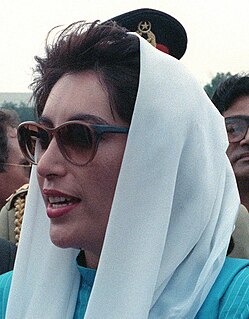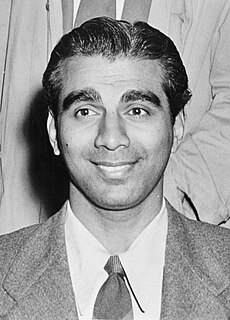Related Research Articles

The People's Progressive Party/Civic (PPP/C) is a democratic socialist, left-wing populist political party in Guyana. As of 2020, the party holds 33 of the 65 seats in the National Assembly and forms the government. It has been the ruling party in the past as well, most recently between 1992 and 2015. In Guyana's ethnically divided political landscape, the PPP/C is a multi-ethnic organization that is supported primarily by Indo-Guyanese people.

The People's National Congress Reform is a social-democratic and democratic socialist political party in Guyana led by Aubrey Norton. The party currently holds 31 of the 65 seats in the National Assembly. In Guyana's ethnically divided political landscape, the PNCR is a multi-ethnic organization supported primarily by Afro-Guyanese people.
The United Force is a conservative and economically liberal political party in Guyana. It currently has no representation in the National Assembly and is led by Marissa Nadir.

General elections were held in Pakistan on 7 December 1970 to elect members of the National Assembly. They were the first general elections since the independence of Pakistan and ultimately the only ones held prior to the independence of Bangladesh. Voting took place in 300 general constituencies, of which 162 were in East Pakistan and 138 in West Pakistan. A further thirteen seats were reserved for women, who were to be elected by members of the National Assembly.

General elections were held in Papua New Guinea between 18 June and 9 July 1977, the first since independence from Australia in 1975. The Pangu Party led by Prime Minister Michael Somare emerged as the largest in the National Parliament. Somare subsequently formed a coalition government with the People's Progress Party (PPP) and several independent MPs. Voter turnout was 60.3%.

General elections were held in Pakistan on 3 February 1997 to elect the members of National Assembly. The elections were a fierce contest between Pakistan Peoples Party (PPP) led by pre-election Prime Minister Benazir Bhutto and the Pakistan Muslim League (N) led by Nawaz Sharif. Unlike the 1990 elections where Sharif won due to allegations of rigging, this time he benefited from the controversial death of Bhutto's brother Murtaza, a populist leader, a worsening economy, and alleged corruption cases against Bhutto's husband Asif Ali Zardari.

General elections were held in Pakistan on 6 October 1993 to elect the members of National Assembly. The elections took place after both the Prime Minister Nawaz Sharif and President Ghulam Ishaq Khan resigned to resolve a power struggle.

Parliamentary elections were held in Syria on 7 July 1947, with a second round in some constituencies on 18 July. They were the first elections since official independence in 1946.

General elections were held in British Guiana on 27 April 1953. They were the first held under universal suffrage and resulted in a victory for the People's Progressive Party (PPP), which won 18 of the 24 seats in the new House of Assembly. Its leader, Cheddi Jagan, became Prime Minister.

General elections were held in British Guiana on 12 August 1957. The result was a victory for the faction of the People's Progressive Party led by Cheddi Jagan, who remained Prime Minister.
The People's Democratic Party was a minor political party in Belize led by Estevan Perera.
General elections were held in Saint Vincent and the Grenadines on 9 December 1974. The result was a victory for the Saint Vincent Labour Party, which won ten of the 13 seats. Voter turnout was 63.2%.

General elections were held in Saint Vincent and the Grenadines on 5 December 1979. The result was a victory for the Saint Vincent Labour Party (SVLP), which won eleven of the thirteen seats. Voter turnout was 63.9%.
The People's Progressive Party was a political party in Saint Lucia. It was the only opposition party in the country from 1951 until 1964.
The People's Political Party was a political party in Saint Vincent and the Grenadines. It was established in 1952 as a breakaway from the ruling Eighth Army of Liberation, and was the country's first lasting nationwide political party. It was the only party to contest the 1954 general elections and received three of the eight seats. In the 1957 elections it received almost half the national vote and won five of the eight seats. In 1961 it remained in power with six of the nine seats.

The National Republican Party (NRP) was a right-wing political party in Guyana.

The Guiana United Muslim Party (GUMP) was a Muslim political party in Guyana.

The Justice Party was an Indo-Guyanese political party in British Guiana.

Good and Green Guyana (GGG) was a political party in Guyana.

Women of Russia was a political bloc in Russia.
References
- ↑ Nohlen, Dieter (2005). Elections in the Americas: A Data Handbook, Volume I. p. 433-435 ISBN 978-0-19-928357-6
- ↑ Nohlen, p. 432.